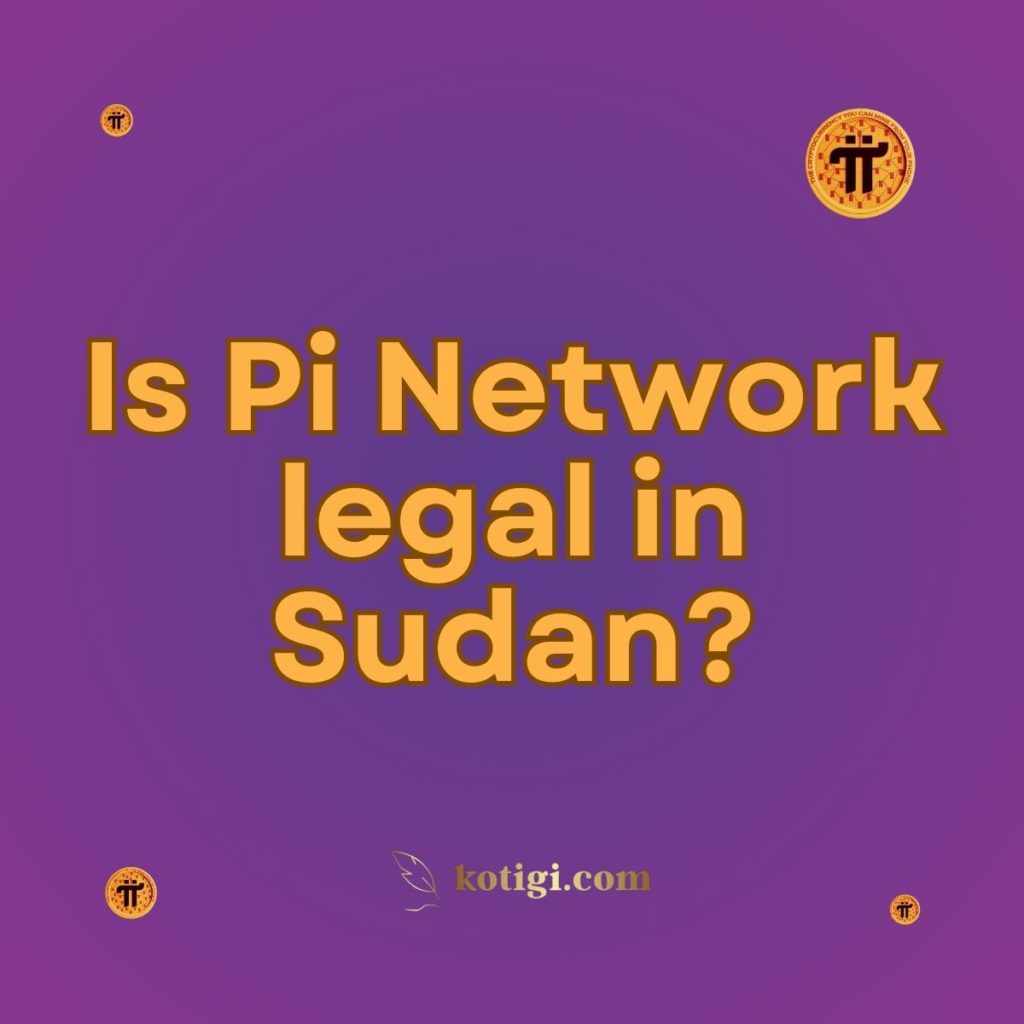
Is Pi Network legal in Sudan?
The legal status of Pi Network in Sudan is not explicitly defined by the country’s current regulatory framework, similar to many developing nations where cryptocurrency regulation is still evolving. While Pi Network has gained global attention for its mobile-friendly mining process, it’s important to assess Sudan’s general stance on cryptocurrencies to understand how Pi Network might fit into the country’s legal landscape.
Cryptocurrency Regulations in Sudan
Sudan has not yet implemented any formal regulatory framework regarding cryptocurrencies like Bitcoin, Ethereum, or Pi Network. The lack of clear legislation on digital currencies means that cryptocurrencies operate in a legal grey area. Sudan’s Central Bank has not issued any official guidelines or regulations specific to the use of cryptocurrencies.
However, it’s worth noting that Sudan faces several economic challenges, including restrictions on international transactions, inflation, and limited access to traditional financial services. Cryptocurrencies, by providing an alternative means of transacting, have been gaining interest in Sudan, though they are not yet legally regulated or officially recognized by the government.
Where Pi Network Stands in Sudan
Pi Network, currently in its testnet phase, does not yet have a real-world monetary value as its Pi coins are not traded on any exchanges. This means Pi Network is still in the developmental phase, and its users are engaging in what can be described as a social and technical experiment, rather than an established cryptocurrency trading platform. Because Pi is not used for payments or trading at the moment, it does not fall under any regulatory restrictions in Sudan.
Since Sudanese authorities have not issued any specific regulations or laws concerning Pi Network, Sudanese users can participate in the Pi Network without legal restrictions at this time. Mining Pi coins on a mobile device is allowed, as there is no legal framework that prohibits this activity.
Potential Future Regulations for Pi Network
If Pi Network transitions to its mainnet and its Pi coins become tradable, the platform may be subject to any future cryptocurrency regulations introduced by the Sudanese government. Given Sudan’s economic environment, the government may eventually regulate cryptocurrencies, especially if they become widely adopted for payments or investment purposes.
It is also possible that if Pi Network enables transactions or payments with its cryptocurrency, Sudan may develop specific policies to regulate or restrict its usage, depending on how the government views the impact of digital currencies on the national economy.
No Official Ban on Pi Network in Sudan
As of now, there is no official ban on Pi Network in Sudan. Users can engage in mobile mining without any concerns regarding legal consequences. However, the legal landscape could change if the government introduces cryptocurrency regulations in the future.
Future Considerations for Pi Network in Sudan
In the event that Pi Network gains popularity and Pi coins start being used in transactions or for trading purposes, Sudan might follow the lead of other countries by establishing rules for the platform. These regulations may include Know Your Customer (KYC), Anti-Money Laundering (AML), and Counter-Terrorism Financing (CTF) requirements, which are common in global cryptocurrency regulations.
Since Sudan is still in the early stages of cryptocurrency adoption, it’s important for Pi Network users to stay updated on any potential changes in the legal environment that could impact their participation in the platform.
Conclusion
Pi Network is currently legal in Sudan, with no specific regulations or restrictions on its use. Sudanese users can participate in Pi mining without legal hurdles, as the country has not yet enacted any formal cryptocurrency laws. However, as the global regulatory environment for digital currencies evolves and Pi coins become tradable, Sudan may develop specific rules governing its use, particularly in the areas of payment systems and digital asset trading.
For now, Pi Network operates in a legal grey area in Sudan, and users should monitor future developments to ensure compliance with any new regulations that may arise.




